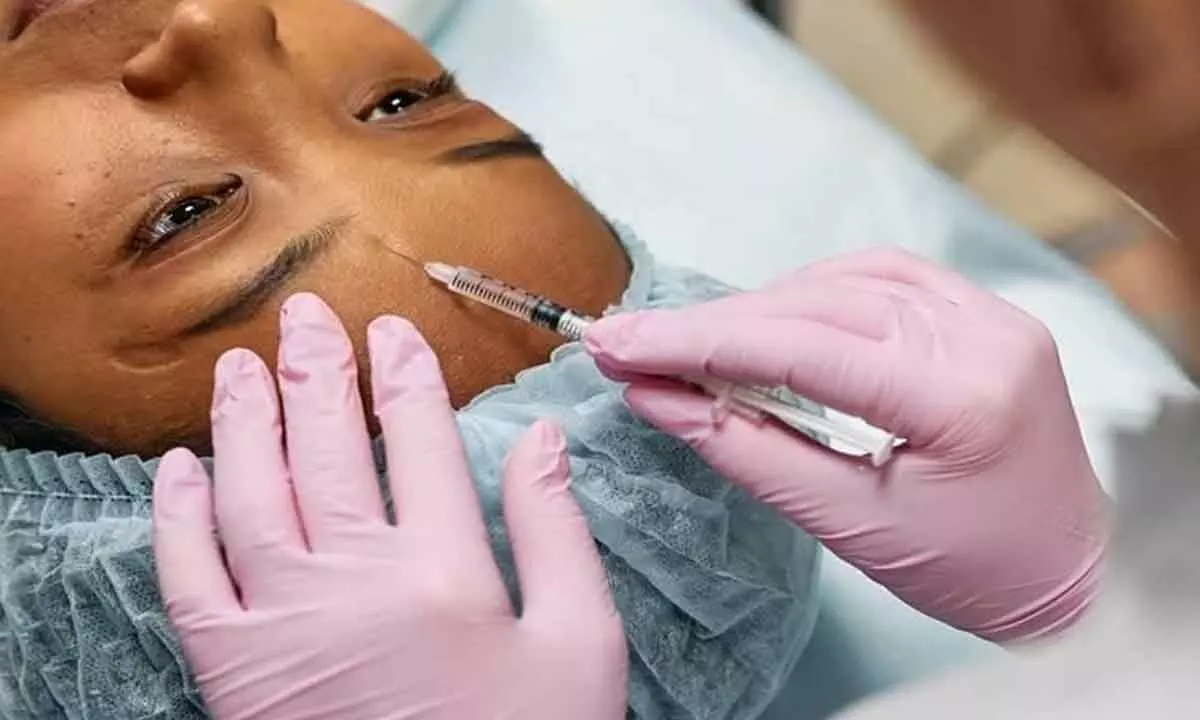What makes bio re-modeling different from fillers?

For obvious reasons, taking care of the skin continues to be important. Therapies and practices for taking care of the skin have advanced along with technology.
For obvious reasons, taking care of the skin continues to be important. Therapies and practices for taking care of the skin have advanced along with technology. Given the current buzz surrounding bio-remodeling, you may be wondering how it differs from other treatments already in use, such as dermal fillers. Botox and other types of fillers were popular for many years among those wishing to enhance the condition and appearance of their skin. However, given that bio-remodeling is receiving so much attention, it's critical to comprehend how they differ and the advantages that each provides.
We'd like to make clear that both treatments use hyaluronic acid (HA), a hydrating stimulant, before we go into the differences, even though one may have a higher concentration than the other. So, let's get started right away.
What is bio-remodeling?
In order to assist the skin, retain moisture, promote collagen, improve skin suppleness, and overall renew the skin, it is simply an injectable version of hyaluronic acid that is injected beneath the layers of the skin. It can be injected into several body areas, including the face, neck, knees, hands, and even the stomach.
What are dermal fillers?
Hyaluronic acid also makes up dermal fillers, however they have a gel-like consistency. They are injected into particular facial regions, including the lips, chin, and nose. They can also be applied to the face to create contours for a better appearance. Additionally, they are quite helpful in reducing wrinkles and moisturising the specific areas of the face, giving them a fuller, younger, and healthier appearance.
Bio-remodelling vs dermal fillers
The first distinction to make is that HA concentrations in bio-remodelling are typically higher, which acts to increase the skin's production of HA, collagen, and elastin. Cellular transformation occurs, leading to noticeable enhancements that endure long after the HA has subsided. Additionally, the texture of bio-remodelling is runnier, supporting uniform distribution throughout various body areas. Bio-remodelling filler has been found to improve the general texture of the skin, particularly in regions where it had previously seemed crumply, thin, or crepey. On the other side, the filler is thicker and more viscous.
The way they are used and applied is another obvious distinction. The hydrolift effect that results from bio-remodelling targets specific predefined spots to help tighten the skin and increase hydration. This procedure can also help cure eczema, acne, hypopigmentation, hyperpigmentation, and a number of other disorders. It can consistently provide skin plumping in various areas since it spreads evenly. Dermal fillers, which help to lift, volumize, fill, and shape particular areas, are thicker in texture and stay put where they are applied.
A discrepancy in treatment frequency is also present. Two treatments spaced one month apart are used for bio-remodelling. This is the recommended dosage, but after the first two treatments, anyone who wants a top-up can have one. With fillers, this is not the case. After careful examination, each person must rely on the counsel of a licenced dermatologist or cosmetic injector consultant. The use of fillers should only be repeated once every 16 to 18 months, though.
Finally, bio-remodelling is done over the course of two scheduled treatments that are separated by a month. Getting an injection may just take ten minutes. Typically, each session comprises of 10 injections that are deliberately administered in various shots. While some people will start to see improvements 7 days after their first session, the majority of people see complete transformation around 30 days after their second appointment. This is because collagen needs time to be stimulated and disseminated throughout the various problem regions. Additionally, it will be roughly 6 months before a subsequent treatment is necessary.
If you're wondering which is best for you, here's a spoiler; if you require wholesome skin rejuvenation across different parts of your body, bio-remodelling is what you should go for. When you need a specific part correction, change of shape, remodelling or filler deficit, it becomes more targeted, hence, enhancing, changing, and modifying the shape of the face. However, HA in a bio-stimulator will not do any of these. There will be no change in the structure or shape of your face. All it will do is boost your own collagen, thereby making your skin look beautiful. Thus, if you don't want any structural change, bio-remodelling is the solution, but if you want structural changes and only need to boost specific areas of your face, such as your nasal bridge, chin and lips, then dermal filler and bio-stimulator together work best. Above all, it is important to only use certified brands. Profhilo is one of the top-rated solutions out there, and it comes highly recommended. Otherwise, you may just be putting yourself at risk by using unscrupulous practitioners or products.
(Dr. Rashmi Shetty, Consultant Aesthetic Dermatologist)














